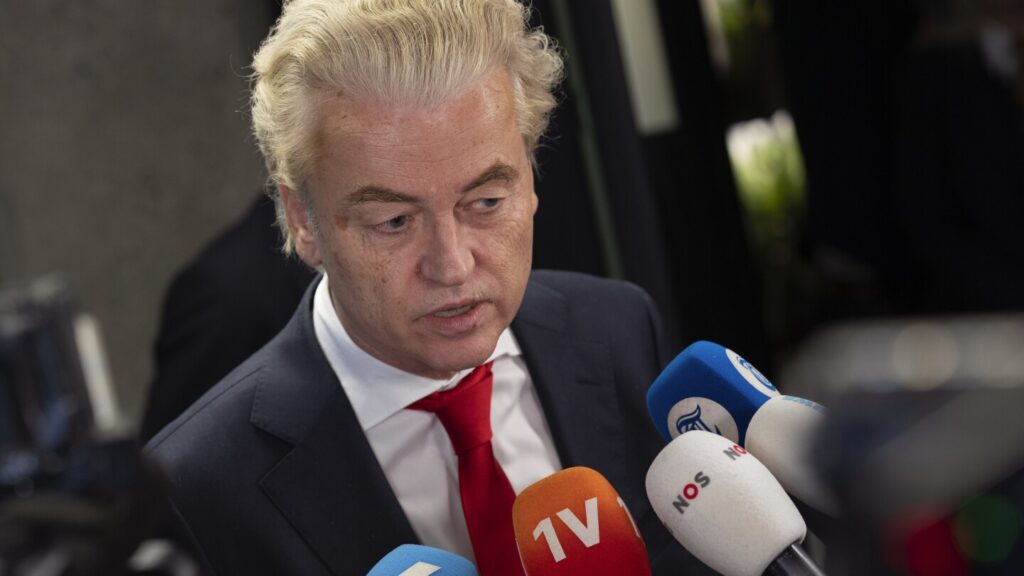THE HAGUE (AP) — Anti-Islamic standard-bearer Geert Wilders and three other party leaders agreed early Thursday on a coalition deal that pivots the Netherlands toward the far right, leaving it still unclear who will become prime minister. This brought an end to six months of turbulent negotiations. .
The Hope, Courage and Pride agreement introduces strict measures against asylum seekers, abolishes refugee family reunification and seeks to reduce the number of international students studying in the country.
“People who do not have a valid residence permit will be deported, even if possible, by force,” the 26-page document reads.
Wilders hailed victory on what he called a “historic day” and confirmed that the other three coalition parties, including outgoing Prime Minister Mark Rutte's party, had accepted the core of his policy. he claimed.
“This is the toughest asylum policy ever,” exclaimed Wilders. “The Dutch are back in first place,” he added, highlighting how migrants and asylum seekers have been treated more favorably than others as a campaign theme.
and far-right and populist parties It currently holds part or control of six governments in the 27-nation bloc and appears to be in a favorable position in the European Parliament elections to be held from June 6 to 9.
Mr. Wilders had already reluctantly admitted that he had no intention of succeeding Mr. Rutte at the helm of national politics. The parties still need to agree on a prime minister, who is expected to be a technocrat from outside the party organization.
Speculation centers on Labour's Ronald Plasterk, who was in the spotlight again this year after becoming the first “scout” to meet with political leaders about a potential coalition.
The agreement states that the next government will continue existing climate action plans, including continuing payments to the climate change fund established last year. But the Peasant Citizens' Movement is part of the coalition government, and the deal includes appeasing language and concessions to farmers who blocked off cities with tractors during destructive protests.
Other issues in the agreement include increasing public housing, toughening penalties for serious crimes and capping property taxes.
The group intends to continue supporting Ukraine and wants to legislate NATO's requirement that 2% of gross domestic product go to defense.
Both parties are scheduled to explain the plan to Congress on Thursday, but debate on the deal will not take place until next week.


